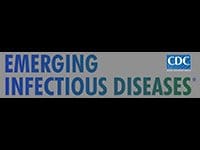Abstract and Introduction
Abstract
Purpose of Review: To provide an update of the current state of antibody therapy for Severe Acute Respiratory Syndrome Coronavirus 2 infection that has progressed immensely in a very short time period.
Recent Findings: Limited clinical effect of classical passive immunotherapy (plasma therapy, hyperimmune immunoglobulin [IgG] preparations) whereas monoclonal antibody therapy, if initiated early in the disease process, shows promising results.
Summary: Although antibody therapy still remains to be fully explored in patients with COVID-19, a combination of IgG monoclonal antibodies against the receptor-binding domain of the spike protein currently appears to provide the best form of antibody therapy, Immunoglobulin A dimers and Immunoglobulin M pentamers also show promising preliminary therapeutic results.
Introduction
Passive immunization has, for more than a century, proven to be highly efficient for treatment and prevention of infectious diseases, particularly in individuals suffering from immunodeficiency, or individuals in whom vaccination is contraindicated. Passive immunization may thus represent a suitable therapy in global emergency situations where vaccines are lacking or where the populations at risk have not been fully vaccinated (for review see[1]).[]
The immunoglobulin (IgG) preparations used for passive immunization are generally purified from human sera with high titers against the microorganisms (following natural infection or vaccination), either as single donations used for plasma therapy or pooled plasma but may also include human/humanized monoclonal antibodies or even sera from animals. Furthermore, the most commonly recommended form of treatment for primary immunodeficiency disorders is replacement therapy with intravenous or subcutaneous gamma globulins (IVIG or SCIG) from healthy human donors. In the past few years, a large number of broader and potent neutralizing monoclonal antibodies have also been isolated, some of which are already in clinical trials/clinical use.
Today's renewed interest in antibody therapies is the consequence of major advances in the technology of antibody development combined with the need for new therapeutic agents against emerging diseases (Ebola, ZIKA, SARS, bird flu, West Nile virus, bioterrorism agents) and new antibiotic resistant microorganisms (Staphylococcus aureus, Enterobacteriaceae, Enterococci, Clostridium difficile). Passive immunization using polyclonal or monoclonal antibody preparation may also be a potential solution for control of current or future pandemics. This review will focus on antibody-based therapies aimed at treating or mitigating infection with Severe Acute Respiratory Syndrome Coronavirus 2 (SARS-CoV-2).
Curr Opin Allergy Clin Immunol. 2021;21(6):553-558. © 2021 Lippincott Williams & Wilkins






